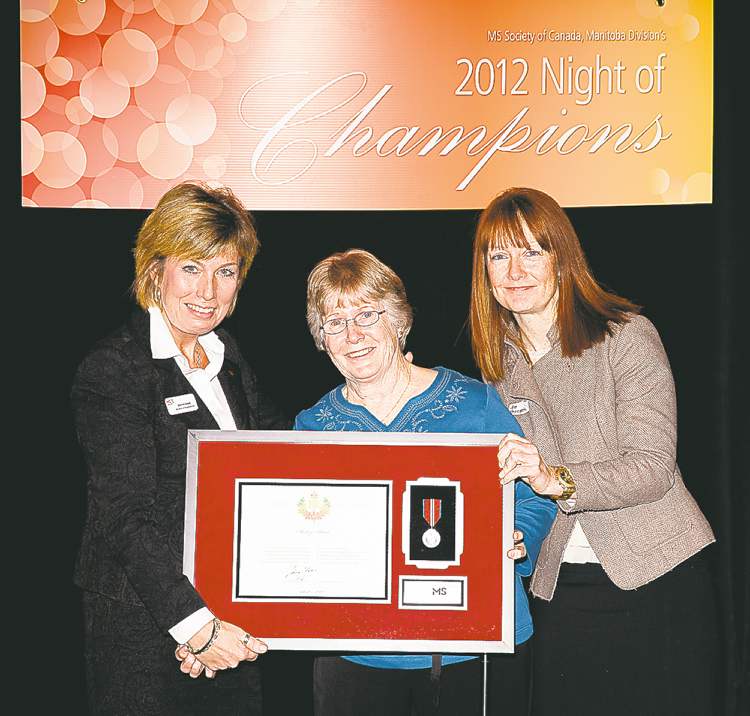Nurse wasn’t prepared for challenges of MS
Advertisement
Read this article for free:
or
Already have an account? Log in here »
To continue reading, please subscribe:
Monthly Digital Subscription
$1 per week for 24 weeks*
- Enjoy unlimited reading on winnipegfreepress.com
- Read the E-Edition, our digital replica newspaper
- Access News Break, our award-winning app
- Play interactive puzzles
*Billed as $4.00 plus GST every four weeks. After 24 weeks, price increases to the regular rate of $19.00 plus GST every four weeks. Offer available to new and qualified returning subscribers only. Cancel any time.
Monthly Digital Subscription
$4.75/week*
- Enjoy unlimited reading on winnipegfreepress.com
- Read the E-Edition, our digital replica newspaper
- Access News Break, our award-winning app
- Play interactive puzzles
*Billed as $19 plus GST every four weeks. Cancel any time.
To continue reading, please subscribe:
Add Winnipeg Free Press access to your Brandon Sun subscription for only
$1 for the first 4 weeks*
*$1 will be added to your next bill. After your 4 weeks access is complete your rate will increase by $0.00 a X percent off the regular rate.
Read unlimited articles for free today:
or
Already have an account? Log in here »
Hey there, time traveller!
This article was published 14/01/2013 (4625 days ago), so information in it may no longer be current.
Thirty years as a critical-care nurse could not have prepared Shirley Atkins for the challenges of living with multiple sclerosis. Thank goodness she has the MS Society of Canada, Manitoba division, fighting alongside her all of the way.
After her diagnosis in 1998, Atkins realized she had been experiencing symptoms on and off dating back nearly 35 years — temporary blindness in one eye, trembling in one hand.
But there was, curiously, a 15-year period of remission.

Then, in 1998, Atkins had trouble walking and keeping her balance. She was diagnosed with MS.
“I was at a loss,” says Atkins. “Here I had a high-profile, high-stress job and I had to retire because I couldn’t run to emergencies anymore. I didn’t know what to do.”
Multiple sclerosis is an unpredictable, often disabling disease of the central nervous system. It can cause loss of balance, impaired speech, extreme fatigue, double vision and paralysis. According to the MS Society of Canada, Canadians have one of the highest rates of MS in the world.
“There are so many variables to the disease,” says Atkins. “Symptoms progress at different rates. It’s always different for each person. There can be a lack of understanding in the general public. They can understand symptoms like the inability to walk, but it’s the invisible symptoms, like not being able to remember something you said the day before, or the fatigue, that are more difficult to understand. … Symptoms come and go. It’s often day by day.”
The mother and grandmother soon felt moved to take action against the disease that forced her into retirement. Atkins began by helping out with the MS Walk and at kiosks in malls. Then she did presentations for community groups about living with MS and participated in the MS Society’s national survey. She now co-facilitates a support group for adults with MS. She even helped write a how-to guide for facilitators of support groups for the MS Society of Canada.
In November 2012, Atkins was awarded a Queen Elizabeth Diamond Jubilee Medal for her volunteer work with the MS Society of Canada, Manitoba division.
On Jan. 18, the society will be holding their Client Services Volunteer Day, which will bring together volunteers such as Atkins to discuss the society’s programs and services.
If you know a special volunteer who strives to make his or her community a better place to live, please contact Carolyn Shimmin-Bazak at
carolynshimmin@gmail.com

